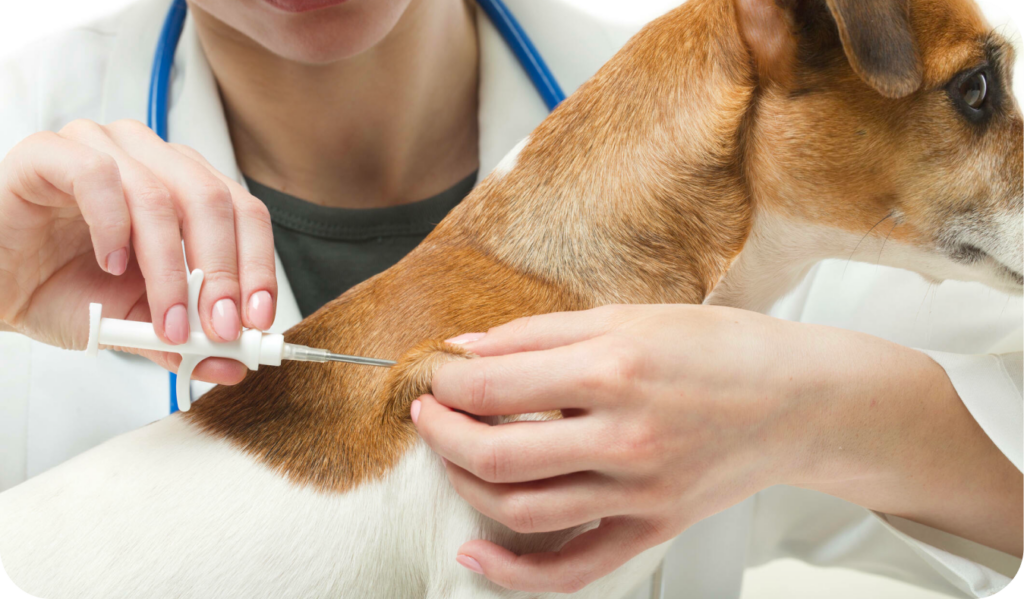Healthcare
Dog Vaccination

Vaccination has revolutionised control of infectious disease in our pets. It is essential that all pets are adequately vaccinated to help protect the pet population as a whole. Responsible pet care requires puppies to be given their initial course of vaccinations, but this cannot protect them for the rest of their lives. Adult dogs require regular vaccination to maintain immunity against disease
At North Maclean Family Vet, we use either a C4 or a C5 vaccine.
A C4 vaccine provides immunity against Parvovirus, Distemper Virus, Infectious Canine Hepatitis and one component of Canine Cough.
The cost of this vaccination and health check is $80.90.
A C5 vaccine provides immunity against Parvovirus, Distemper Virus, Infectious Canine Hepatitis and two components of Canine Cough.
The cost of this vaccination and health check is $100.05.
Following vaccination some dogs may be off-colour, or have a slight swelling or tenderness at the injection site. A small proportion of dogs may develop signs such as coughing or sneezing within a few days of vaccination.These symptoms are normally mild and should only last a day or two.
Here are some ways to help look after your pet if they develop any mild side effects after vaccination:
- Provide them with a comfortable place to rest
- Do not give any medications unless instructed by your veterinarian
- Check on your pet regularly
- Make sure they have access to their water and food
- Your pet may be quieter than usual, and appear less interested in playing with you. This is OK! They will come to you for attention when they are feeling better
No needle
Fast Acting
Easy Oral dosing
12 months protection
Canine coronavirus is another contagious virus and causes depression, loss of appetite, vomiting and diarrhoea especially in young dogs. Diarrhoea may last for several days in some cases. Although most dogs will recover with treatment, coronavirus has the potential to be fatal, especially if other infectious agents such as parvovirus are present.
* Risk of animals spreading SARS-CoV-2*


